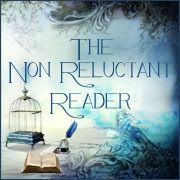
Today I'm thrilled to welcome Jeffrey David Payne, author of Far From the War (my review, here), which is too be published next week! I really enjoyed it! Let's get started!

Benji: What do you think is the likely hood of something happening like what happened in Far From the War?
Jeffrey David Payne: When I first started Far From The War, I would have said the prospect of another civil war in the United States was far fetched. I think one of the reasons I did so much research and took such pains to make it seem real is that I thought the premise would be hard to believe. But that was quite a while ago. After what we've seen in Washington over the past few years and recently in Egypt and Wisconsin, as politics become more divisive and the art of compromise dies off, I don't meet many people who find the premise implausible anymore. If anything, I meet people going the other direction -- hording food, gold, medicine and in many other ways preparing for a collapse of some kind. I'm not sure how likely I think a full-on prolonged civil war would be, but some kind of civil unrest or political disruption now seems highly likely.
Benji: I've read you have lots of military experience, did that help you in writing Far From the War?
Jeffrey David Payne:A little bit, but my military experience was in the Nuclear Navy, so was never a soldier. I was essentially a uniformed nerd trained to boil water with Uranium. Even so, I got a sense of how people in the military talk, their sense of humor and particularly the nature of military leadership, senior officers. You meet a lot of people in the service that fit the "hero" mold, selfless defenders of liberty, etc. But you meet even more misfits, borderline psychopaths and careerist officers who'd throw anybody under the bus if it gets them closer to a star. Like humanity in general, the military hosts a full spectrum of mankind's virtues and vices.
Benji: If you could pick one character from Far From the War to go on a cross-country road trip with, who would it be?
Jeffrey David Payne: This is a tough one. If I were young, I'd probably say Gwen. Esther would intimidate me and I wouldn't be able to relax. As an adult, I'd probably pick Esther's father. In this day and age, it's almost inviting ridicule to openly discuss politics, economics or other "important subjects". It would be nice to spend a few days with somebody who's open to conversation not afraid to have and defend and opinion, with someone with a genuine curiosity about the state of the world. You don't see this side of Esther's father much in the first book, but you will in the second.
Benji: How often do people in your real life transfer into your novels?
Jeffrey David Payne: This happens on two levels. First, there are characters inspired by real people. Esther is based largely on some of the whip-smart debater chicks I remember from my days on the high school debate team. Alex and Ashley are based on my wife Kathryn and I. General Crowder is based loosely on a Senior Chief I served under at Naval Nuclear Power School. Second, there are the pop culture references and allusions to real life people. I think these add a shade of humor and realism.
Benji: How do you think this book is different compared to most dystopian novels?
Jeffrey David Payne: It's very different, different enough that it's almost a stretch to call it dystopian. As you indicate in your review, most dystopian fiction has a lot of world building. Think about the
Jeffrey David Payne: When I first started Far From The War, I would have said the prospect of another civil war in the United States was far fetched. I think one of the reasons I did so much research and took such pains to make it seem real is that I thought the premise would be hard to believe. But that was quite a while ago. After what we've seen in Washington over the past few years and recently in Egypt and Wisconsin, as politics become more divisive and the art of compromise dies off, I don't meet many people who find the premise implausible anymore. If anything, I meet people going the other direction -- hording food, gold, medicine and in many other ways preparing for a collapse of some kind. I'm not sure how likely I think a full-on prolonged civil war would be, but some kind of civil unrest or political disruption now seems highly likely.
Benji: I've read you have lots of military experience, did that help you in writing Far From the War?
Jeffrey David Payne:A little bit, but my military experience was in the Nuclear Navy, so was never a soldier. I was essentially a uniformed nerd trained to boil water with Uranium. Even so, I got a sense of how people in the military talk, their sense of humor and particularly the nature of military leadership, senior officers. You meet a lot of people in the service that fit the "hero" mold, selfless defenders of liberty, etc. But you meet even more misfits, borderline psychopaths and careerist officers who'd throw anybody under the bus if it gets them closer to a star. Like humanity in general, the military hosts a full spectrum of mankind's virtues and vices.
Benji: If you could pick one character from Far From the War to go on a cross-country road trip with, who would it be?
Jeffrey David Payne: This is a tough one. If I were young, I'd probably say Gwen. Esther would intimidate me and I wouldn't be able to relax. As an adult, I'd probably pick Esther's father. In this day and age, it's almost inviting ridicule to openly discuss politics, economics or other "important subjects". It would be nice to spend a few days with somebody who's open to conversation not afraid to have and defend and opinion, with someone with a genuine curiosity about the state of the world. You don't see this side of Esther's father much in the first book, but you will in the second.
Benji: How often do people in your real life transfer into your novels?
Jeffrey David Payne: This happens on two levels. First, there are characters inspired by real people. Esther is based largely on some of the whip-smart debater chicks I remember from my days on the high school debate team. Alex and Ashley are based on my wife Kathryn and I. General Crowder is based loosely on a Senior Chief I served under at Naval Nuclear Power School. Second, there are the pop culture references and allusions to real life people. I think these add a shade of humor and realism.
Benji: How do you think this book is different compared to most dystopian novels?
Jeffrey David Payne: It's very different, different enough that it's almost a stretch to call it dystopian. As you indicate in your review, most dystopian fiction has a lot of world building. Think about the
four ministries in 1984 or the 13 districts in The Hunger Games. Real dystopian is a sub genre of science fiction. There's nothing scifi about Far From The War. It's set in present day America with just a few tweaks made to our current economic and political situation to create an environment volatile enough to foster a civil war. In fact, some of these fictional tweaks have actually happened in real life. For example, the government's credit downgrade and the move away from settling oil futures contacts in U.S. Dollars -- which in my book create the depression, $30 a gallon gas, and Little Zurich -- have both now actually happened. Pretty scary.
Benji: Why should we read Far From the War?
Jeffrey David Payne:I wouldn't put myself in a position to tell your readers what they "should" do. I can only speak for what my intentions were when I wrote the book and leave it to bloggers and critics like yourself to say whether or not those goals were achieved. I would say that I'm not a big fan of escapist fiction, books that don't leave you with anything to ruminate on once you're finished. I wanted to leave the reader with more questions than answers and I set out to write a book that shows what a shooting war on American soil would really do to ordinary people in the hope that people who might otherwise consider initiating or supporting political violence might try to work things out with a peaceful political process. I also wanted to deal with a civil war in a non-partisan way, in a way that wouldn't alienate people of certain political beliefs. Real life is not bi-polar and our political parties are just coalitions of convenience. It would be dishonest and almost propagandist to tell a story like this from a rigid political perspective. I set out to cut through all the political spin we're constantly subject to and just tell the reader what can happen if our politicians refuse to work together. As Shelby Foote said, once the American Civil War of the 1860's was caused by a failure to compromise. Hopefully my book can remind people of what can happen, and has happened, in America we refuse to compromise.
Thanks so much to Jeffrey for stopping by! Visit him on his website!
And now... to the giveaway fun! Roche Harbor Books has offered up one personalized signed copy of Jeffrey's new novel, Far From the War to a lucky winner! And besides getting to read this epic novel there is also a quote from my review on the back! My review! The giveaway will end September 22ed and is open internationally, there are plenty of ways to get extra entries as always... fill out this form to enter (Click on the word form to get to the form).






















































No comments:
Post a Comment
Thank you for the comment, I love and appreciate each and every one! As of March 2012, The Non Reluctant Reader is an awards-free zone. I'm honored to be considered, but do not currently have the time to pass the award on. Comments are the best award I can receive though! If the comment requires a reply, please be sure to check back for one. If it is a feature/meme leave a link to your post and I will stop by and comment if I get the chance!